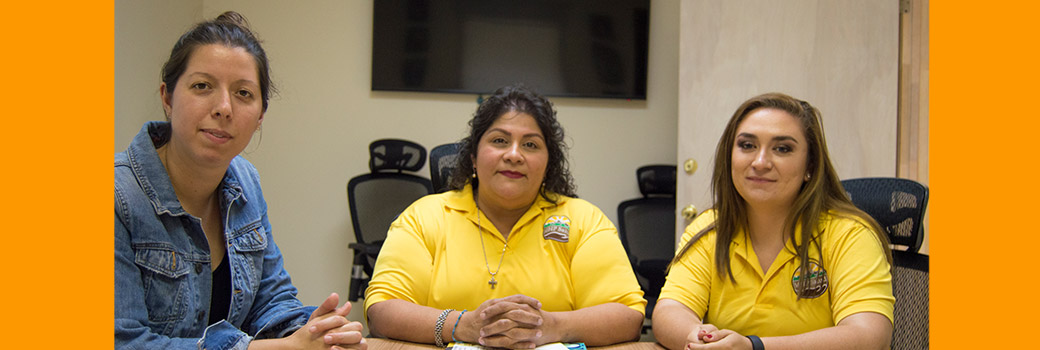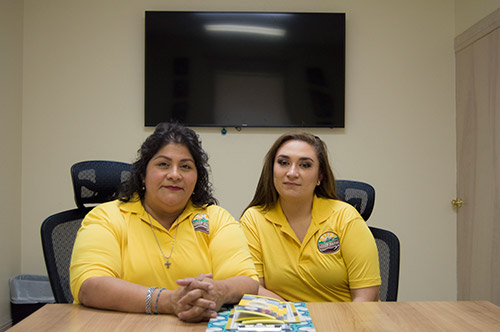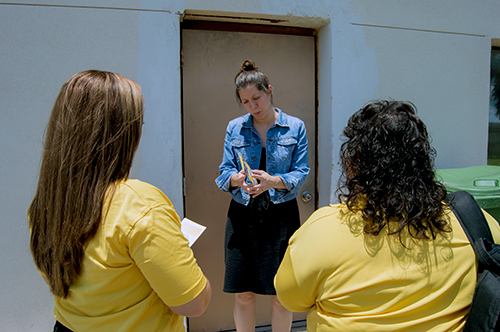
Community Health Workers in Michigan
A Historic Look at the Rise of CHWs In Michigan
August is Community Health Worker Appreciation Month in Michigan! Community Health Workers (CHWs) are frontline public health workers who are trusted members of the community or have an unusually close understanding of the community served. This intimate understanding of the community establishes trust between community members and the CHW, which increases the efficacy of community health outreach. Community Health Workers provide much-needed culturally and linguistically tailored care to the people who need it most. They positively impact the health and well-being of traditionally hard-to-reach underserved communities, by increasing utilization of services and supporting the adoption of healthy behaviors.
The first Community Health Workers in Michigan were trained in the 1960s to provide services to their communities.[1] Around this time, the federal government began providing funding for community-based programs that used CHWs to reach underserved communities.[2]
Community Health Workers in Michigan and across the country began having an impact on the national level when in 1978, CHWs formed the New Professionals Special Primary Interest Group in the American Public Health Association (APHA). This group was renamed the Community Health Worker Section in 2001. From its inception in 1978, this group “…promotes the community’s voice within the health care system.”
In 1983, MHP Salud was formed to address the needs of the migrant farmworker population in Michigan using the Community Health Worker model. Our agency was one of the first major CHW organizations to be established in Michigan. MHP Salud has since expanded to other areas across the country but retains in roots in Michigan. MHP Salud currently operates one CHW program in Southeast Michigan, Amigas de Lenawee County Moviéndose Adelante (ALMA), which provides support for survivors of sexual assault and intimate partner violence.
New Developments in the CHW Industry Over the Years
Over the years, CHWs have been established as a cost-effective, culturally-tailored way of reaching traditionally hard-to-reach, underserved populations. In the last few decades, the evidence base for employing CHWs has become more robust, as in-depth evaluations of CHW program outcomes and cost-effectiveness have become more common. CHW programs commonly report a financial return on investment (ROI) ranging from approximately $1.50-5 for every $1 spent. In Michigan, the Muskegon Community Health Project, which uses CHWs to assist with enrollment assistance, reported $350,000 recovered by enrolling patients in Medicaid.
Community Health Workers in Michigan organized in 2011 to advocate for their profession within the healthcare industry. The Michigan Community Health Worker Alliance (MiCHWA), was established to promote and sustain the integration of CHWs into the health and human services workforce in Michigan. While the state of Michigan does not have standardized requirements for CHW certification, MiCHWA has developed CHW training and education standards, with the intention that these will be used for future policies on the state level.

Two MHP Salud Community Health Workers
New funding mechanisms have positively influenced the CHW profession, both in Michigan and across the country. In January 2014, new federal regulations on Medicaid and Medicare allowed the reimbursement of recommended preventive services to be provided by non-licensed providers, which includes CHWs. This national policy created a significant opportunity for the CHW profession, by providing the opportunity for the reimbursement of preventive services that CHWs often provide, like group health education, lactation consulting and diabetes prevention programs.[3]
In 2016, the state of Michigan entered into a Medicaid managed care contract, which required all health plans to maintain at least one full-time CHW per 20,000 patients, provide or arrange for CHW services for enrollees with complex health issues, and to establish a reimbursement method for CHW work that promoted behavioral health integration.[4]
Over the last few years in Michigan, CHW programs have grown in popularity as an effective method of delivering affordable healthcare. In March 2015, the Michigan Primary Care Association (MPCA) partnered with the Michigan Department of Health and Human Services and the American Cancer Society to create a new CHW program in Michigan to improve cancer screening rates. This program spanned across 8 health centers and increased the number of cervical and breast cancer screenings.[5],[6] In 2016, this program was expanded to include colorectal and lung cancer screenings.[7]
“MI Care Teams” were launched by the Michigan Department of Health and Human Services in 2016. This service model was created to provide support to qualifying chronically-ill Michigan residents. The influence of MI Care Teams has been far-reaching, with approximately 3,645 people in Michigan currently enrolled in the program.[8] In this role, CHWs identify community resources, provide referrals, support chronic disease self-management and provide health education. They conduct home visits and work within the community to improve community health.
The CHW workforce in Michigan has been steadily growing and gaining recognition as an effective means of improving health in the community. According to the Bureau of Labor Statistics, there are approximately 54,760 CHWs working in Michigan. These CHWs work in various areas across the state but most can be found in Wayne, Kent and Washtenaw Counties.[9]

Performing outreach with potential program participants
What the Future Holds
Over the next decade, MHP Salud envisions the CHW model further expanding in Michigan and across the country. According to the Bureau of Labor Statistics, employment of Community Health Workers (and health educators) is expected to grow by 16% from 2016 to 2026. This growth will largely be driven by efforts to improve health outcomes and reduce costs through the investment in improving health behaviors and increasing utilization of services.
As the evidence base for the use of CHWs in healthcare has grown, it is important to also address the policies and systems-level changes that are needed for the successful establishment of CHWs as healthcare professionals. This includes developing and advocating for sustainable funding mechanisms, creating training opportunities for CHWs, their supervisors and other healthcare professionals that work with CHWs and developing standardized scope of practice definitions and certification requirements for CHWs.
About MHP Salud
MHP Salud has over thirty years of experience implementing CHW programs and training organizations looking to start and/or strengthen their own CHW programs. For more information about MHP Salud, our services, and how we can help you, please email us at info@mhpsalud.org
References
- [1] https://pdfs.semanticscholar.org/presentation/8b44/340d4051dcadf94bf069765923dbbe43f473.pdf
- [2] https://www.ncbi.nlm.nih.gov/pmc/articles/PMC1615805/pdf/amjph00446-0017.
- [3] http://healthyamericans.org/health-issues/wp-content/uploads/2014/07/Medicaid-and-Community-Prevention-Final-Revised-5-15-14.pdf
- [4] https://nashp.org/state-community-health-worker-models/
- [5] https://www.mpca.net/page/CHWtoolkit
- [6] https://www.michigancancer.org/bcccp/PDFs/AnnualMtg/PPTs/J-Combined.pdf
- [7] https://www.michigancancer.org/bcccp/PDFs/AnnualMtg/PPTs/J-Combined.pdf
- [8] https://www.michigan.gov/mdhhs/0,5885,7-339-71547_4860_75161—,00.html
- [9] https://pdfs.semanticscholar.org/presentation/8b44/340d4051dcadf94bf069765923dbbe43f473.pdf







